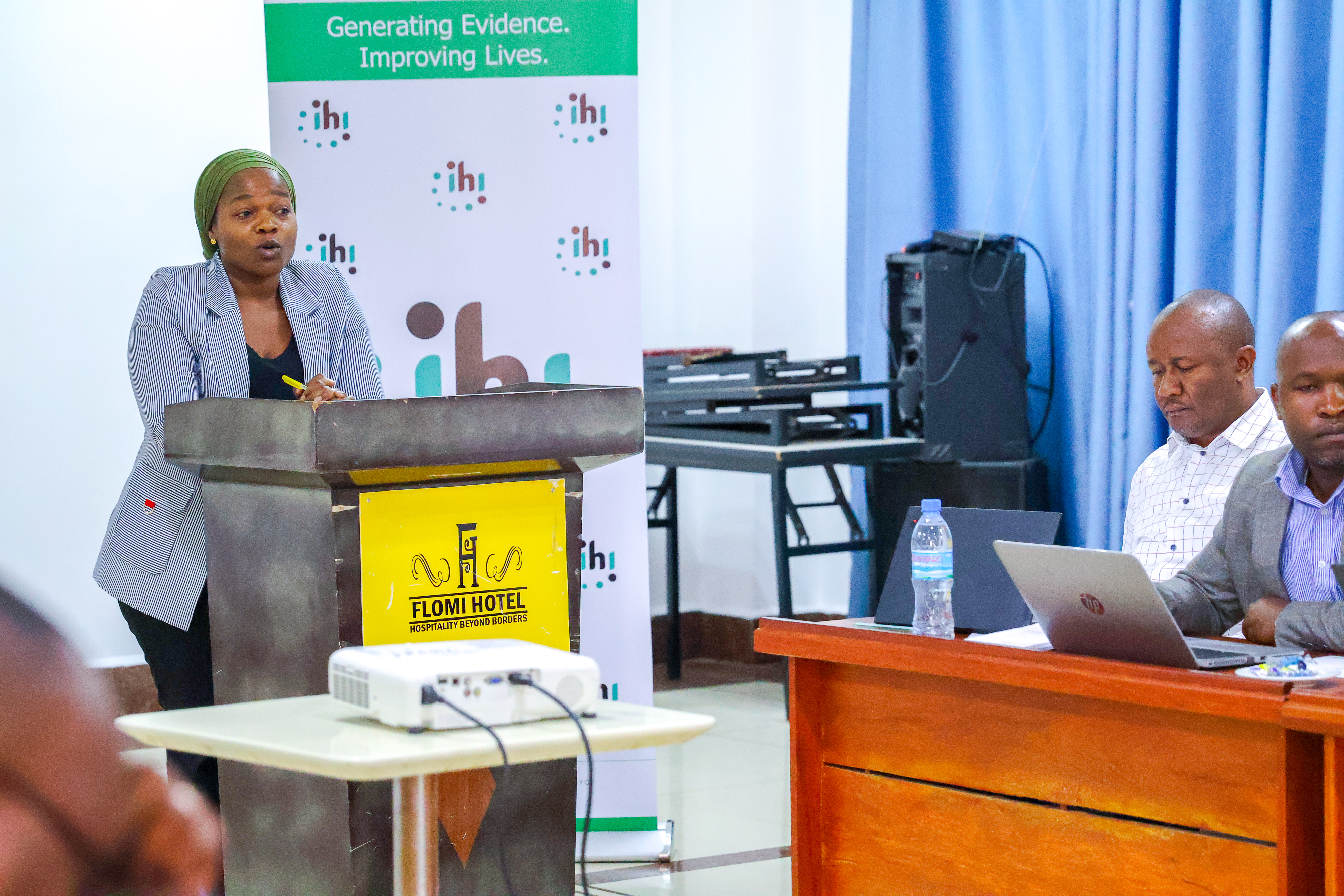
MEETING: Ifakara, partners to improve mortality data accuracy in Tanzania

December 3 2024, Ifakara Health Institute, in collaboration with the Ministry of Health (MoH) and the Registration Insolvency and Trusteeship Agency (RITA), convened a one-day meeting in Morogoro town, aimed at strengthening the mortality data pipeline in Tanzania. The event brought together key stakeholders to strategize on activities for the Sample Registration System (SRS) Planning Project, which began in October 2024 under Ifakara's leadership.
Supported by the Bill & Melinda Gates Foundation (BMGF), the SRS project seeks to establish a National Sample Registration System to improve the accuracy and completeness of mortality data in Tanzania. This effort is critical for informed health policy and planning.
Enhancing mortality data systems
In her opening remarks, Mrs. Trust Nyondo, a statistician from MoH, emphasized the importance of collaboration, urging participants to actively contribute to the enhancement of the SRS and harmonization of mortality data systems. "Through improved data systems, we can ensure better implementation of health policies and programs," she stated.
Dr. Siglibert Mrema, Ifakara research scientist and SRS Project Leader, outlined the workshop’s objectives, noting: “The primary objective of this workshop is to raise awareness among stakeholders about the initiative to develop a national strategic action plan for implementing the Sample Registration System (SRS). Through engagement, participants will gain insights into the current state, challenges, and opportunities within Tanzania’s mortality surveillance systems.”
Addressing gaps in mortality surveillance
Gisbert Msigwa, a statistician from the MoH, presented the background and scope of the SRS project. He highlighted that while some initiatives exist, Tanzania still faces significant challenges in submitting timely and accurate cause-of-death data due to resource constraints, system inefficiencies, and manpower shortages. "Addressing these challenges collaboratively is key to establishing sustainable and effective mortality data systems," he noted.
Participants also engaged in discussions to identify gaps, propose solutions, and draft an action plan for determining key SRS indicators. These efforts aim to create a robust framework for comprehensive data collection and improved routine mortality surveillance within the national strategic framework.
Diverse stakeholder engagement
The workshop brought together representatives from various sectors, including government agencies, non-governmental organizations, academic institutions, and international partners. Participants included officials from the President’s Office – Regional Administration and Local Government (PoRALG), the Ministry of Home Affairs, the National Bureau of Statistics (NBS), the World Health Organization (WHO) Country Office, AMREF, the University of Dar es Salaam, UNICEF, and Kampala International University.
About the SRS Project
The Sample Registration System (SRS) project is a vital initiative to address gaps in Tanzania’s mortality data collection. Existing systems, such as the Civil Registration and Vital Statistics (CRVS) and the Routine Health Information System (RHIS), face challenges in coverage and completeness, often relying on sporadic household surveys. By establishing a reliable and comprehensive mortality surveillance framework, the SRS project will enhance Tanzania’s capacity to generate accurate data essential for health policy and planning.
Learn more about the SRS Planning Grant here.
